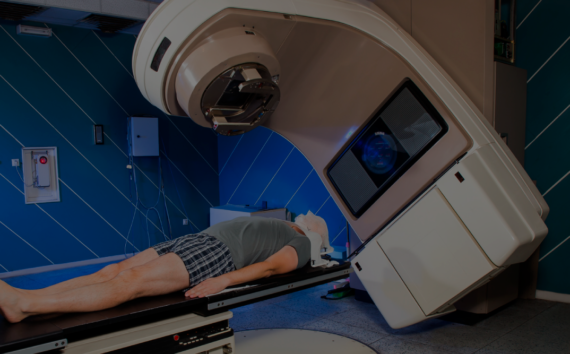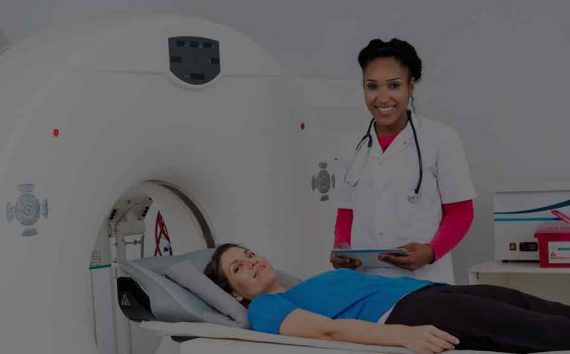INTRODUCTION
With the expansion of the radiological and nuclear area and the updating of the radiological protection requirements demanded by the Brazilian regulatory authorities, there is a need for a multifunctional professional who is better prepared to meet the recurring demand of the labor market.
In order to serve professionals who want to start in the area or who are already working and need to be updated, this Graduate Course from Instituto Inbrarad in partnership with Faculdade Casa Branca (FCB) is structured to specialize and provide a solid foundation in safety and radiological protection of ionizing radiation sources, thus enabling action in the areas that make up the medical and industrial applications of ionizing radiation, following the guidelines and precepts postulated in the resolutions of ANVISA and CNEN.
The Graduate Course “Specialization in Radiological Protection with an emphasis on Medical and Industrial Supervision” has a faculty formed by reference professionals in their fields, highly trained and active in the radiological and nuclear market, where they are able to apply a dynamic methodology , practical and updated, providing a differential in the training of specialists in radiological protection

OBJECTIVE
Specialize professionals to perform safety and radiological protection activities in medical and industrial establishments, in accordance with the current legislation of CNEN and ANVISA (Resolution – RDC No. 330 of December 20, 2019).
Specialize professionals for the development of teaching skills in radiological safety and protection to prepare them to be knowledge multipliers and help in the dissemination and awareness of the safety culture
TARGET AUDIENCE
Holder of a higher education degree, graduated by an officially recognized Higher Education Institution: Radiology Technologists, Occupational Safety Technologists, Physicists, Engineers, Nurses, Biomedicalists, Biologists, Pharmacists, Health Professionals and related areas, and who attend to the requirements of the educational institution.
WORKLOAD
The Graduate Course “Specialization in Radiological Protection with an emphasis on Medical and Industrial Supervision” at Faculdade Casa Branca (FCB) has a total of 460 hours distributed in modules.
TEACHING STAFF
The faculty is composed of professors with doctors, masters and specialists with vast academic and professional experience in the radiological and nuclear fields.
CURRICULUM
MODULE I: FUNDAMENTALS OF RADIOLOGICAL PROTECTION & DOSIMETRY
MODULE II: NUCLEAR INSTRUMENTATION
MODULE III: REGULATORY CONTROL, LEGISLATION AND GENERAL RULES
CNEN NN-3.01, NE-3.02
ANVISA RDC 330
International Organizations
MODULE IV: RADIOLOGICAL PROTECTION IN MEDICAL SERVICES
Applications: radiodiagnostics, radiotherapy, nuclear medicine
Radiological protection measures applied
Specific legislation and standards
MODULE V: QUALITY CONTROL IN MEDICAL SERVICES
Radiodiagnosis, Radiotherapy and Nuclear Medicine
MODULE VI: RADIOLOGICAL PROTECTION IN INDUSTRIAL SERVICES
Applications: safety inspection (cargo and bodyscan), radioactive tracers, oil well prospecting, industrial irradiation, industrial radiography, nuclear meters
Radiological protection measures applied
Specific legislation and standards
MODULE VII: RADIOLOGICAL PROTECTION IN NUCLEAR APPLICATIONS
Fuel Cycle and Power and Research Reactors
MODULE VIII: SHIELD CALCULATION
MODULE IX: RADIOLOGICAL PROTECTION MANAGEMENT
Practical aspects of radiological protection activities in medical and industrial services;
Safety Culture
MODULE X: TRANSPORTATION OF RADIOACTIVE MATERIALS
Radiological protection measures applied
Specific legislation and standards
MODULE XI: RADIOACTIVE WASTE
Conceptualization
Licensing of Radioactive Waste Deposits
Radiological protection measures applied
Specific legislation and standards
MODULE XII: PHYSICAL PROTECTION
Physical protection applied to medical and industrial services
Specific legislation and standards
WORKSHOP MODULE
NORM – Naturally Occurring Radioactive Material
Estimation of external doses using the Monte Carlo method
Intervention in Radiological Emergency Situations
DYNAMIC MODULE 1
Research methodology
Conceptualization (EAD)
TCC Guidance
TCC Preview
TCC Defense
DYNAMIC MODULE 2
Supervised Practices
Medical and industrial services
DYNAMIC MODULE 3
Teaching Skills in Radiological Protection
FINAL CONSIDERATIONS
There will be a maximum of 30 places available for each class;
The selection process will take into account higher education;
The final course conclusion work (TCC) will be carried out in groups defined by the general coordination of the course and must be presented as a Scientific Article;
Online classes will be made available for some modules, not exceeding 20% of the current workload (Ex.: Research Methodology, etc.);
A virtual classroom will be made available for each class in which students will have full support during the course (didactic materials, online classes, exercises, assessment of activities, etc…);
The prerequisite for the course is that participants must have higher education (radiology technologists, doctors or dentists);
In order to carry out the classes, in addition to traditional teaching techniques, the student will have the opportunity to learn using technological resources such as “data show” projectors, microcomputers and educational software. Through dynamic classes focused strictly on professional practice, students will learn through teacher-student and student-student interactions.



